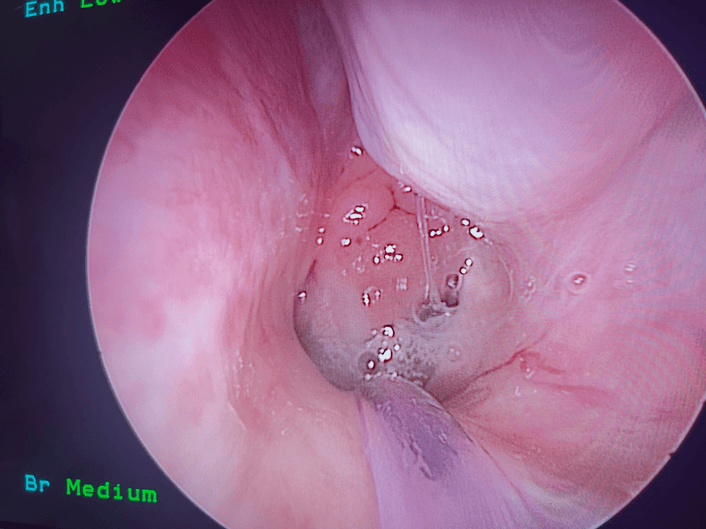What is Failure to Thrive
Failure to thrive in children due to enlarged adenoids is often linked to chronic breathing difficulties, poor sleep quality, and reduced nutrient intake. Enlarged adenoids can block the airway, causing sleep apnea and restless sleep, which can impair growth hormone secretion essential for development. Additionally, persistent nasal congestion and difficulty swallowing may lead to reduced appetite and inadequate nutrition. Over time, these factors can result in stunted physical growth, weakened immunity, and delayed milestones in affected children. Early diagnosis and treatment are crucial to prevent long-term complications.
What Are Adenoids and Their Function?Adenoids are small masses of lymphatic tissue located in the upper airway behind the nose. Along with the tonsils, they form part of the immune system, acting as a first line of defense against infections by trapping bacteria and viruses that enter through the nose.
In children, adenoids play a vital role in developing immunity by producing antibodies. However, as a child grows older, their importance diminishes as other parts of the immune system take over, and the adenoids naturally shrink.
Why Do Adenoids Enlarge?
Adenoids may enlarge due to:
- Frequent Infections: Repeated exposure to bacteria and viruses can cause the adenoids to swell as they fight off pathogens.
- Allergies: Chronic inflammation from allergic reactions may lead to persistent enlargement.
- Environmental Factors: Exposure to pollution, irritants, or smoking increases the likelihood of hypertrophy.
How Enlarged Adenoids Affect the Immune System
While adenoids contribute to immunity, their chronic enlargement can paradoxically impair the immune system by:
- Becoming a Breeding Ground for Infections: Stagnant mucus in the nasal passages promotes bacterial growth.
- Blocking Airways: Obstruction leads to mouth breathing, which bypasses the natural filtering mechanism of the nose.
- Reducing Oxygen Intake: Impaired breathing affects the body’s ability to fight infections and recover.
What Happens If Enlarged Adenoids Are Left Untreated? The Chain Reaction
- Chronic Nasal Obstruction: Persistent mouth breathing can cause dry mouth, bad breath, and altered facial structure.
- Mucus Buildup and Postnasal Drip: Enlarged adenoids obstruct the nasal passages, leading to mucus buildup. This trapped mucus drips down the throat (postnasal drip), causing persistent coughing and throat irritation.
- Sleep Apnea: Blocked airways often result in from poor-quality sleep, leading to daytime hyperactivity and decreased attentiveness.
- Hyperactivity and Inattention: Poor-quality sleep manifests as hyperactive behavior and reduced focus.
- Hearing Loss: The buildup of mucus can block the Eustachian tubes, leading to otitis media with effusion (fluid in the middle ear). This condition causes hearing loss, further hampering the child’s ability to learn and concentrate.
- Failure to Thrive One of the most concerning symptoms of untreated adenoidal hypertrophy is “failure to thrive”, where a child’s physical and emotional growth is significantly hindered, leading to chronic fatigue, poor appetite, and reduced nutrient absorption. This slows weight gain, height growth, and cognitive development.
Why Many Parents Miss the Signs
Parents often misattribute hyperactivity and inattentiveness to behavioural issues, ignoring the underlying medical cause. Similarly, hearing loss caused by OME might be mistaken for a lack of interest in studies or play.
Why Should Adenoids Be Removed?
While steroidal nasal sprays can manage mild cases by reducing inflammation, surgery is often necessary for long-term relief. Key reasons to consider removal include:
- Persistent Symptoms: When breathing, sleep, or hearing does not improve with conservative treatment.
- Recurrent Infections: Frequent ear or sinus infections that antibiotics fail to resolve.
- Severe Sleep Apnea: Disrupted sleep affects growth and daily functioning.
- Failure to Thrive (FTT) : It is the most critical reason for adenoid removal.
What Happens When Adenoids Are Removed?
Removing adenoids (adenoidectomy) does not compromise a child’s immunity. By the time surgical removal is considered, other immune mechanisms, such as lymph nodes and bone marrow, are well-developed. Benefits of removal include:
- Improved Breathing: Clear airways enhance oxygen supply.
- Better Sleep: Relief from sleep apnea leads to healthier growth and behavior.
- Reduced Infections: Fewer ear infections and less risk of otitis media.
- Improved Concentration: Hearing and attentiveness improve, boosting academic performance.


Recent Comments